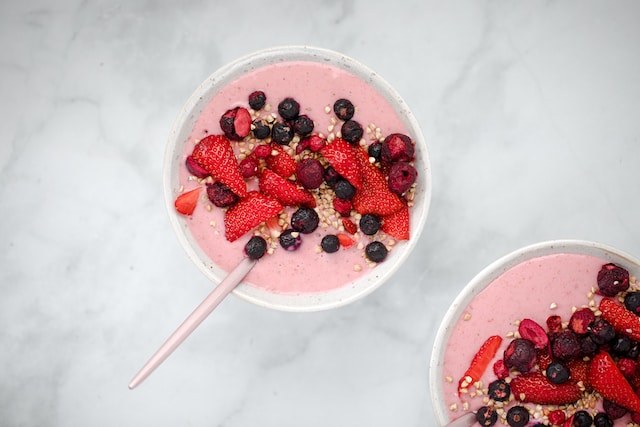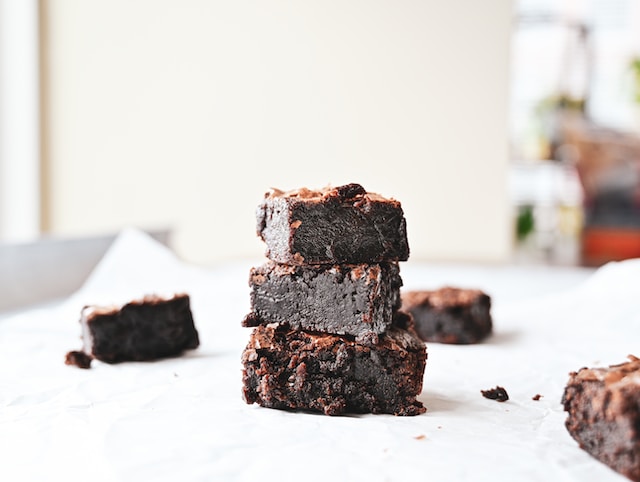CRAFTING THE ULTIMATE HIGH-PROTEIN MUSCLE-BUILDING DIET PLAN

It’s one thing to consume enough calories, but it’s another to provide our bodies with sufficient protein. Otherwise, muscle growth will be accelerated. All the heavy bench presses and squats in the universe won’t produce dramatic mass gains without the amino acids that protein provides. If you want to get ripped, muscular, and jacked up, then a high-protein diet will be essential.
This guide will teach you everything you need about how to maximize the muscle-building potential of protein. Discover the optimal daily protein target for your weight, activity level, and best sources of whole foods to begin consuming.
You’ll also gain valuable insights into how to optimize your intake of protein in order to maximize nutrient absorption. Keep reading to find out how a high-protein diet can help you gain more strength and size.
Why Protein Matters For Building Muscle
Among the macronutrients that support muscle growth, dietary proteins are unique.
Synthesizing Muscle Protein– Protein is the building block that allows your body to continually synthesize muscle proteins. This increases muscle protein synthesis for faster muscle growth.
Repairing Damage– Intense exercise causes microscopic tears to muscle tissue. Consuming proteins allows for muscle repair, and in the end, increases muscles.
Hormone production – Amino acid facilitates the production of important hormones such as testosterone and IGF-1. These anabolic hormonal compounds increase protein synthesis, and therefore signal greater muscle growth.
Protein intake is necessary for muscle growth. How much protein do you really need?
Daily Protein Intake Guidelines
You can determine your daily protein intake ranges by analyzing your weight, intensity of training, and goal. Here are some general guidelines.
Sedentary adults– 0.8 grams for every kilogram of weight, or 0.35 gram per pound. This is 56 grams for men, and 46 for women per day.
Endurance athletes– 1.2 to 1.4 grams per kilogram (0.5 to 0.06 grams per pound) supports metabolic needs.
Resistance trainers — Maintaining and building muscles requires higher intakes of 1.6-2.2 grams or 0.7-1 gram per pound.
Aggressive muscle building – Up to 2.2 grams or 1 gram of amino acids per kilogram ensures that growth and repair are fully supported.
For a male weighing 175 pounds who wants to gain muscle, the daily target is 175 g of protein. You can achieve your daily goals by weighing food and keeping track of intake. You should also time your protein intake.
When to Eat Your Protein?
The timing of your meals and nutrients in relation to your workouts will help you build muscle.
Pre Workout– Consuming between 20-40 grams protein one hour before exercise helps maintain amino acid levels, and prevents muscle breakdown.
Post Workout — Another 20-40 grams after training kickstarts repair, recovery, growth, taking advantage of increased nutrient absorption and sensitivity.
Before bed – Eating 30-50 grams slow-digesting proteins before bed will provide overnight amino acid delivery. This is perfect because muscle protein synthesis increases during sleep.
This pre-, post- and intra-workout model of protein intake allows your muscles to be fueled efficiently, allowing you to achieve rapid gains in strength and size.
Best High Protein Food Sources
Include in your daily diet a variety of lean and complete sources of protein, such as:
Leucine is a great source of iron, zinc and B vitamins. Target 90/10 ground steak and flank steak.
Skinless Turkey and Chicken– The poultry is very versatile. Combine it with carbs such as rice and vegetables.
Fish and Seafood– Salmon, tuna cod and tilapia each pack over 20 grams of protein in 3 ounces of cooked fish. Omega fatty acids are also found in this fish.
Eggs & Whites– Packed with BCAAs to fuel muscle growth and repair. Hard boil eggs for snacks.
Greek Yogurt is an excellent source of protein complete, with 23 grams in each cup. It contains probiotics which support digestion and immunity.
Cottage Cheese– The casein protein in cottage cheese, which is digested by the body, provides amino acids throughout the night. Stock up on the low-fat versions.
Whey and Casein Supplements – These supplements are a blend of whey and casein that is fast-absorbing but slow-releasing. They complement whole food sources.
Combining meat, dairy and other protein sources at meals and snacks makes it easy to meet your daily protein goals.
[Image: A variety of high-protein foods, including Greek yogurt and eggs, as well as salmon, chicken, and salmon]
Sample High Protein Day Of Eating
Here is an example of a high-protein diet that provides around 200 grams of protein for muscle building.
Preworkout at 7am
- 3 whole eggs + 3 Egg Whites
- 1 cup oatmeal
- 1 cup blueberries
Provides approximately 40 grams of protein
Post Workout
- Protein shake
- Bananas are available in a variety of sizes.
Provides approximately 35 grams of protein
Noon-Lunch
- 8 oz chicken breast
- 1 cup brown rice
- 1 cup mixed vegetables
Provides about 50 grams of protein
3 pm – Snack
- Greek yogurt protein parfait
- 30 almonds
Provides approximately 20 grams of protein
Dinner at 6 PM
- 8 oz flank steak
- Sweet potato
- 1 cup broccoli
Provides about 45 grams of protein
Before Bedtime
- Casein protein shake
- 1 tbsp Peanut Butter
Provides 25 grams or less of protein
To build a muscular body, you need to consume enough protein every day. You can find expert advice on the optimal timing and intake of protein at Broscience . When muscles are primed to grow, time 20-40 grams of proteins around your workout. Track macros over time to fine-tune your plan.
Prepare to be complimented on your jacked look if you use a diet high in protein as the foundation of your training. Stock up on protein powders, Greek yogurt, chicken, cottage cheese and other sources of proteins. Over-consuming protein can cause kidney damage. Use high-protein foods in your daily meal plan to hit macros and gain muscle faster.
It is important to remember that a body of impressive proportions is only possible if you consistently consume high-quality proteins. Don’t forget to give your body what it needs. However, muscle gains are dramatic. Use this advice to create a nutritional plan that will complement your efforts at mass-building. You can expect to see impressive gains in strength and size!


MOST COMMENTED
FITNESS / Health
How To Build Muscle In A Healthy Way: A Comprehensive Guide
FITNESS / Health
5 REASONS WORKOUT CLASSES FOR AGE-INCLUSIVE PEOPLE ARE GAME-CHANGERS
Health / HOME
KEEPING YOUR CLINIC UP WITH THE TIMES
HOME / Wellbeing
TIPS FOR MOVING A TINY HOME
FITNESS / Health
HOW TO FIND AN ACTIVITY YOU LOVE TO HELP YOU STAY ACTIVE
FITNESS / Health
The 3 Best Reasons To Incorporate Cannabis Into Your Fitness Routine
HOME / Wellbeing
Winter Wellbeing: Self-Care Strategies For Managing Seasonal Affective Disorder
HOME / Wellbeing
DON’T FORGET THESE ESSENTIALS THE NEXT TIME YOU HEAD OUT OF TOWN
Health / HOME / Wellbeing
UK FOREST HOLIDAYS: YOUR GUIDE TO EMBRACE NATURES PLAYGROUND
FITNESS / Health
Fitness Coaches: 3 Top Tips To Stay Motivated